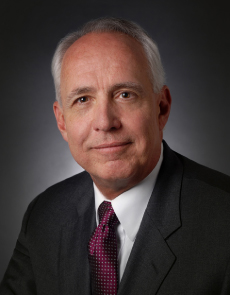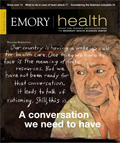To teach

AAMC President Darrell Kirch
By Darrell Kirch
The president of the Association of American Medical Colleges weighs in on health reform.
As you read this article, a vigorous debate is being waged on Capitol Hill and across the nation about health care reform.
In many ways, this debate affirms what a number of leaders in academic medicine have stated and what forums like the Blue Ridge Academic Health Group already have shown—that the keystone of any reform effort is improved integration among providers. In other words, for reform to be successful, we must do a better job of aligning incentives and improving synergies among the various components of our health care system, including insurance coverage, delivery systems, financing, and information technology.
Accomplishing lasting reform requires a unique kind of leadership, one that is highly credible and includes a breadth and depth of clinical expertise; a track record of serving all population segments; an approach that is national in scope, but focused on patients and communities; and the infrastructure to collect and analyze data on new care models. Sustaining this transformation will require the ability to train new leaders to be change agents and mentors to future generations. These five factors—Training, Expertise, Access, Central focus on patients and communities, and Health services research capacity (TEACH)—make academic medicine uniquely qualified to lead our nation in health care reform.
Training: As the training ground for health professionals at all levels, medical schools and teaching hospitals are preparing new doctors and other health care providers for a patient population that is growing, aging, and becoming increasingly diverse; care delivery that is more patient-centered; and work environments that are increasingly inter-professional and team oriented. By exposing professionals at an early stage of training to large-scale innovation and dynamic delivery environments, academic medicine is fostering change agents who will, in turn, mentor future generations.
Expertise: With clinical expertise that is as comprehensive as it is deep, academic medical centers (AMCs) are able to provide the entire spectrum of health care services from preventive to specialized care. Additionally, as part of larger university systems, AMCs can draw on the knowledge of numerous disciplines (as shown by this month’s cover story featuring interviews with Emory experts in primary care, quality, public health, and economics).
Access: This expertise is enriched by a track record of caring for patients from all population segments. (Notably, major teaching hospitals, which comprise only 6% of hospitals nationwide, provide nearly half the nation’s hospital charity care.) Many AMCs are large systems that already encompass the components needed to test new models of integrating care (for example, hospitals, physician practices, post-acute care) and possess longstanding relationships with local partners.
Central focus on patients and communities: From a structural standpoint, AMCs reach all parts of the nation, but their focus is on patients and communities. The ability to effectively communicate with patients and their families is a fundamental competency reinforced throughout the continuum of medical education. On a broader scale, AMCs as institutions apply this deep concern for patient health and well-being through a variety of community service and outreach activities.
Health services research capacity: As research institutions, AMCs have the built-in infrastructure to collect and analyze data related to new care delivery models.
Some may ask, "If academic medicine is so well suited to lead the way, why haven’t we seen a more visible demonstration of integrated care?"
First, the level of health care innovation now taking place at AMCs is dynamic, with much of the activity occurring under the radar. With so much activity taking place simultaneously, the rate of innovation outpaces the ability to document or publicize the degree of transformation now under way.
Second, to the extent that some institutions already have emerged in the public spotlight, it is due largely to their unique position geographically and demographically (for example, ability to leverage existing health care spending for large populations in defined geographic areas). This enables them to support systems that better align benefits, delivery, and information, and to test innovative business models (for example, the medical home and accountable care organizations).
The issue, therefore, is not whether our leadership goes unnoticed, but how can we fully leverage "the five factors" to improve the health of our nation?
As we move forward, a critical step will be addressing the barriers posed by a financing and delivery system that prevents other components from functioning effectively and efficiently. Achieving the level of integration necessary for true reform requires changing both financing and delivery systems in tandem. This will necessitate an unprecedented public-private partnership that we hope will be embodied in any health care reform legislation. Given the scale of the challenge, it makes sense that there should be pilots before any option is widely implemented, and such demonstrations will benefit from having an AMC at their core.
We are hopeful that the current debate and proposed reforms lead to comprehensive change that results in true health care transformation. At the same time, we, as a community, must realize our potential to help bring about this transformational change. No one is better qualified than academic medicine to lead the nation in health care innovation and we should not hesitate to embrace this opportunity.
Darrell Kirch is president and CEO of the Association of American Medical Colleges, which represents the nation’s medical schools, teaching hospitals, and academic societies. A member of the Institute of Medicine, Kirch is a distinguished physician, educator, and medical researcher based in Washington, DC.


